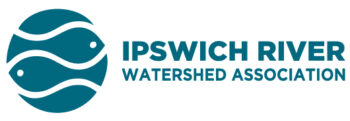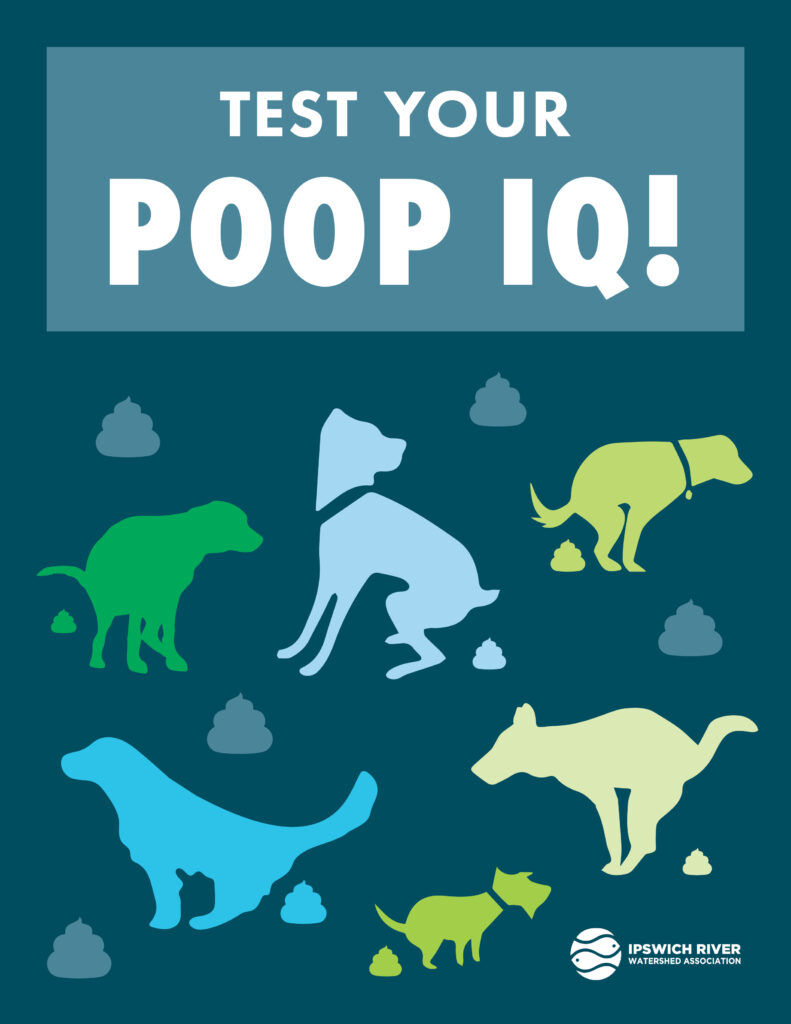Did you know? Dog waste is one of the sneakiest threats to the Ipswich River’s water quality! When it rains, forgotten poop becomes a pollutant just like road salt and fertilizer. It travels into our waterways and degrades water quality.
Dog lovers, you can help! We’re inviting you to test your poo-tential with our Dog Poop IQ Quiz and become a river-saving hero — one bag at a time.
Why is dog poop so bad for our watershed?
Dog poop gets washed into our streams and storm drains when it rains – and the bacteria in dog poop can make swimmers, children, and other dogs very sick.
True or False: Dog waste is worse for water quality than wild animal waste.
True! Dog poop has more harmful germs, and there are a lot of dogs – more than the environment would naturally support.
What are the biggest barriers to dog owners picking up their dog’s poop?
Forgetting bags and no way to easily dispose of waste.
What percent of bad bacteria in our waterways can be traced back to dogs?
20%
True or False: Dog waste has more harmful bacteria than human waste.
True! Dog poop has twice as much bad bacteria as human waste
What happens to dog waste when it rains?
Rain washes dog waste into the nearest river, and it ends up in the ocean untreated.
True or False: You can put dog poop in a biodegradable bag in a recycling or compost bin.
False. Dog poop should never be disposed of in a recycling or compost bin.
Name three parasites or bacteria found in dog poop that can be transmitted to humans.
Giardia, Salmonella, and Campylobacter.
What symptoms can humans, especially children, experience after being exposed to dog waste bacteria?
Flu-like symptoms, vomiting, diarrhea, ear infections, rashes, and fever.
What does dog waste have in common with cigarette butts, nip bottles, plastic water bottles and fertilizers?
They are all common stormwater pollutants in the Ipswich River Watershed.

